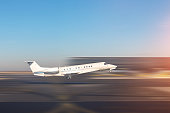
Introduction
Private aviation has emerged as a major sector throughout the broader aviation trade, characterized by its unique operational dynamics and customer base. Over the past decade, the demand for private plane flights has surged, driven by numerous elements including elevated wealth, the need for time efficiency, and the desire for customized journey experiences. This article delves into the tendencies surrounding private plane flights, explores the advantages they provide, and examines the environmental implications of this mode of transportation.
Traits in Private Aviation
The growth of private aviation can be attributed to several key developments. First, the rise of the ultra-excessive-internet-price particular person (UHNWI) population has been a main driver. In keeping with the 2021 Wealth Report by Knight Frank, the number of UHNWI individuals is predicted to grow considerably in the coming years, notably in areas equivalent to Asia and the Center East. This enhance in wealth correlates with a higher demand for private journey choices, as these individuals seek to maximize their time and convenience.

Furthermore, the COVID-19 pandemic has had a profound influence on the private aviation sector. As business airways faced unprecedented challenges, many travelers turned to private flights as a safer alternative. The perception of enhanced security and reduced publicity to potential well being risks has made private aviation extra interesting. Based on a report by the Nationwide Enterprise Aviation Association (NBAA), private jet usage elevated by roughly 30% in 2020, with many first-time customers experiencing the advantages of private travel.
Another pattern is the growth of on-demand charter services and fractional ownership models. Companies like Wheels Up and NetJets have popularized the idea of shared possession and membership applications, permitting extra people to access top private jet charter companies aviation without the monetary burden of full ownership. This democratization of private flying has broadened the market, making it more accessible to a wider viewers.
Benefits of Private Plane Flights
Private plane flights supply quite a few benefits over commercial air travel, appealing to both business and leisure travelers. one way private jets charter of many most significant benefits is time effectivity. Private jets can access 1000's of airports, permitting travelers to land closer to their last destinations and avoid the lengthy security strains and boarding processes associated with commercial flights. This flexibility can save hours of travel time, making it notably engaging for business executives who want to maximise their productiveness.
Moreover, privacy and consolation are paramount in private aviation. Passengers can conduct meetings, get pleasure from customized catering, and loosen up in a spacious cabin without the distractions generally discovered on commercial flights. The ability to customize the in-flight experience, from entertainment options to seating arrangements, enhances overall satisfaction.
Moreover, private aviation can present a sense of exclusivity and prestige. For a lot of travelers, flying privately will not be nearly transportation; it represents a life-style choice that reflects their success and status. This psychological aspect plays a vital role within the enchantment of private flights, as people seek to differentiate themselves from the plenty.
Environmental Impacts of Private Aviation
Despite the numerous benefits related to private plane flights, there are important considerations concerning their environmental impact. The aviation trade is a notable contributor to greenhouse gas emissions, and private jets are inclined to have a disproportionately high carbon footprint per passenger compared to industrial airways. Based on a examine by the Worldwide Council on Clean Transportation (ICCT), private jets emit up to 14 occasions extra carbon dioxide per passenger mile than business flights.
In response to rising environmental issues, the private aviation sector is exploring varied strategies to mitigate its influence. One approach is the adoption of sustainable aviation fuels (SAFs), which have the potential to considerably reduce lifecycle emissions. SAFs are produced from renewable sources and could be utilized in present aircraft engines, making them a viable possibility for the private aviation industry.
Moreover, companies are investing in more gas-efficient aircraft and exploring electric and hybrid propulsion applied sciences. The development of electric vertical takeoff and touchdown (eVTOL) aircraft represents a promising frontier in private aviation, probably offering a more sustainable mode of transportation for brief-haul flights.
Regulatory Issues
As the private aviation sector continues to grow, regulatory frameworks are evolving to deal with security, security, and environmental considerations. Governments all over the world are implementing stricter laws regarding emissions and noise pollution, which may impression the operations of private jets. The International Civil Aviation Organization (ICAO) has established tips for decreasing aviation emissions, and lots of countries are aligning their insurance policies with these standards.
Moreover, the rise of urban air mobility (UAM) is prompting discussions about the mixing of private aviation into current transportation methods. As cities explore the potential of air taxis and different modern solutions, regulatory our bodies will want to determine complete frameworks to make sure security and effectivity in city airspace.
Conclusion
Private plane flights have turn out to be an integral a part of the aviation landscape, driven by developments equivalent to increased wealth, the affect of the COVID-19 pandemic, and the rise of on-demand services. While the benefits of private aviation are vital, including time efficiency, privateness, and comfort, the environmental implications cannot be missed. As the business seeks to stability growth with sustainability, the adoption of revolutionary applied sciences and regulatory measures might be essential in shaping the way forward for private aviation.
In abstract, the private aviation sector is at a crossroads, presenting each opportunities and challenges. As client demand continues to evolve, stakeholders must navigate the complexities of environmental accountability whereas delivering the distinctive service that defines private flying. The way forward for private plane flights will depend upon the trade's skill to adapt and innovate in response to altering societal expectations and environmental imperatives.














